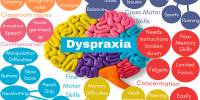A new study examined survey findings from parents of identical or non-identical twins in England and Wales aged 16 months to 13 years. The study discovered that fussy eating is mostly driven by genes and is a stable feature that persists from toddlerhood to early adolescence.
Fussy eating is mostly determined by genes and is a stable behavior that lasts from toddlerhood to early adolescence, according to a new study headed by experts from UCL (University College London), King’s College London, and the University of Leeds.
The study, published in the Journal of Child Psychology & Psychiatry and funded by the UK mental health charity MQ Mental Health Research, examined survey findings from parents of identical or non-identical twins in England and Wales aged 16 months to 13 years.
The researchers discovered that average levels of food fussiness remained pretty steady during this time, peaking around the age of seven and then falling slightly after that. They concluded that genetic differences in the population explained 60% of the variation in dietary fussiness at 16 months, increasing to 74% or more between the ages of three and thirteen.
Food fussiness is common in children and can be a major source of anxiety for parents and caregivers, who frequently blame themselves or are blamed by others. We hope our finding that fussy eating is largely innate may help to alleviate parental blame. This behaviour is not a result of parenting.
Dr Zeynep Nas
Environmental factors shared by twins, such as the types of foods eaten at home, were found to be significant only in toddlerhood, whereas environmental factors unique to each twin (i.e., not shared by co-twins), such as individual personal experiences (e.g., having different friends), became more influential later in life.
Food fussiness is the inclination to eat a limited range of foods due to texture or taste preferences, or a reluctance to try new foods.
Dr Zeynep Nas (UCL Behavioural Science & Health), the study’s lead author, stated, “Food fussiness is common in children and can be a major source of anxiety for parents and caregivers, who frequently blame themselves or are blamed by others.”
“We hope our finding that fussy eating is largely innate may help to alleviate parental blame. This behaviour is not a result of parenting. Our study also shows that fussy eating is not necessarily just a ‘phase’, but may follow a persistent trajectory.”
Senior author Professor Clare Llewellyn (UCL Behavioural Science & Health) said: “While genetic factors are the predominant influence for food fussiness, environment also plays a supporting role.

“Shared environmental factors, such as sitting down together as a family to eat meals, may only be significant in toddlerhood. This suggests that interventions to help children eat a wider range of foods, such as repeatedly exposing children to the same foods regularly and offering a variety of fruits and vegetables, may be most effective in the very early years.”
The research team examined data from the UCL-led Gemini study, the biggest twin cohort ever assembled to investigate genetic and environmental influences on early growth, which included 2,400 sets of twins. Parents completed questionnaires regarding their children’s eating habits when they were 16 months, three, five, seven, and thirteen years old.
and distinguish between genetic and environmental impacts, the researchers evaluated the similarity in fussy eating between non-identical twin pairs, who share 50% of their genes, and identical twin pairs, who share 100% of their genes. They discovered that non-identical twin pairs were significantly less comparable in their picky eating habits than identical twin pairs, indicating a strong genetic influence.
The researchers also discovered that identical twin pairs became increasingly dissimilar to one another in terms of fussy eating as they grew older, indicating that distinct contextual circumstances play a larger influence as people mature. (Differences between identical twin pairs are due to unique environmental circumstances, while identical twins share both their DNA and certain components of their environment, making them more similar.)
According to the study, unique environmental factors accounted for around a fifth of individual differences in finicky eating among children aged seven to thirteen. Meanwhile, shared contextual factors accounted for a quarter of individual differences in mealtime fussiness between children at 16 months, with a minor effect in subsequent years.
Senior author Dr Alison Fildes (University of Leeds) said: “Although fussy eating has a strong genetic component and can extend beyond early childhood, this doesn’t mean it is fixed. Parents can continue to support their children to eat a wide variety of foods throughout childhood and into adolescence, but peers and friends might become a more important influence on children’s diets as they reach their teens.”
Among the study limitations, the researchers noted that there were fewer participants at age seven (703 children) compared to other time points and that the study sample had a large proportion of white British households of higher socio-economic backgrounds compared to the general population of England and Wales.
















